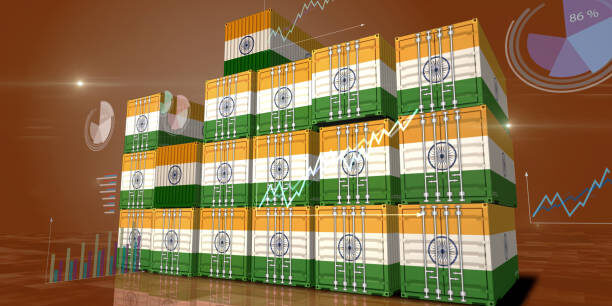India has recently made significant strides in enhancing its global trade relations with the signing of a key Supply Chain Resilience Agreement (SCRA) under the Indo-Pacific Economic Framework for Prosperity (IPEF). Officially launched on February 24, 2024, this agreement marks a crucial step toward fortifying supply chains that are essential for both national security and economic stability. The agreement is part of a collaborative initiative involving 14 member nations, which collectively account for around 40% of the global GDP.
The agreement positions India alongside the United States, which chairs the newly established Supply Chain Council (SCC), while India serves as the Vice-Chair. This collaboration underscores India’s growing leadership role in global supply chain resilience and its commitment to strengthening economic and trade relations among participating nations.
Union Minister of State for Commerce and Industry, Jitin Prasada, emphasized the agreement’s objectives: “The agreement is designed to enhance economic, commercial, and trade relationships, while also improving the resilience of supply chains critical to national interests,” he stated. The agreement aims to address vulnerabilities in supply chains, particularly those exposed during recent global disruptions, ensuring greater reliability moving forward.
Key strategies within the SCRA include a focus on private sector engagement, as outlined in Article 6.10. This provision encourages collaboration among industry leaders and academic institutions to improve the resilience, efficiency, productivity, and sustainability of IPEF supply chains. The initiative seeks to create an inclusive supply system that benefits all stakeholders.
Additionally, the agreement prioritizes the identification of “critical sectors” and “key goods” necessary for safeguarding national security and public health. This targeted approach has gained importance in light of recent global events, reinforcing the need for secure and dependable supply chains. India has been actively engaged in discussions to define these critical domains, particularly within sectors like semiconductors, critical minerals, chemicals, and healthcare. This proactive approach reflects India’s commitment to ensuring the stability and sustainability of its supply chain infrastructure.
The SCRA also plays a vital role in enhancing crisis response capabilities. India participated in the first meeting of the Crisis Response Network, which conducted simulations of potential supply chain disruptions. This exercise aimed to sharpen the response times of member nations and improve preparedness for unforeseen global challenges.
The agreement also builds on India’s ongoing collaboration with the United States in areas like semiconductors and critical minerals, highlighted by the signing of several Memorandums of Understanding (MoUs) in recent years. These agreements emphasize the urgency of reinforcing key sectors and securing supply chains from future disruptions.
In a world increasingly vulnerable to geopolitical tensions, pandemics, and natural disasters, the IPEF’s Supply Chain Resilience Agreement represents a timely and crucial effort to create stronger, more reliable supply networks. India’s role in this initiative not only strengthens its position within the Indo-Pacific region but also supports its broader strategy of enhancing supply chain resilience for long-term economic stability.
The Supply Chain Resilience Agreement is a significant move forward in ensuring that global supply chains are more secure, adaptive, and prepared for the future, marking a positive step for both India and its international partners.
#ICTTMNews #BreakingNews #SupplyChainResilience #GlobalTrade #EconomicStability







